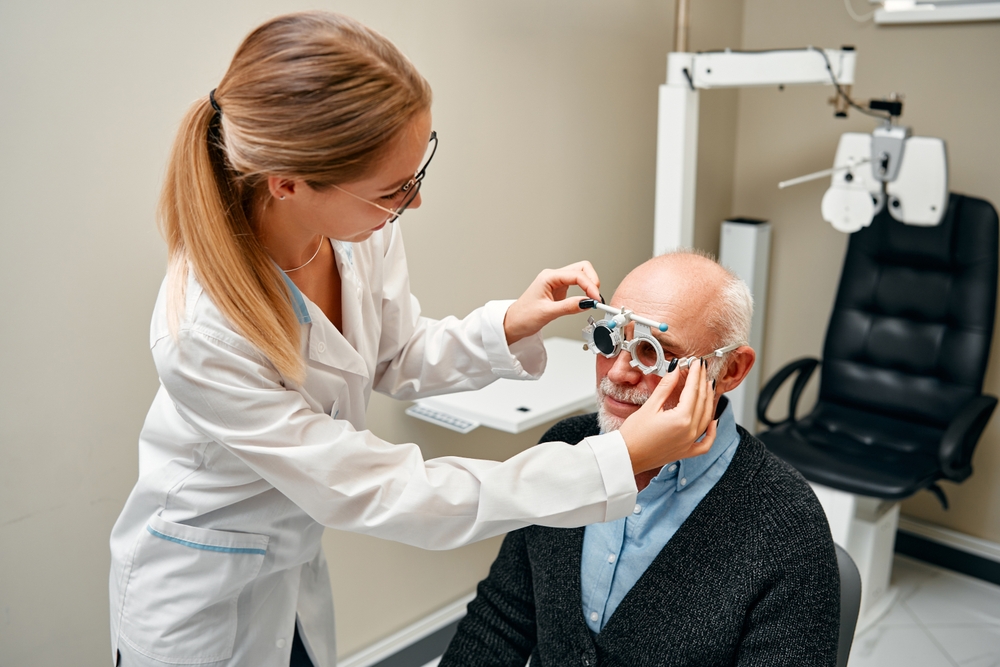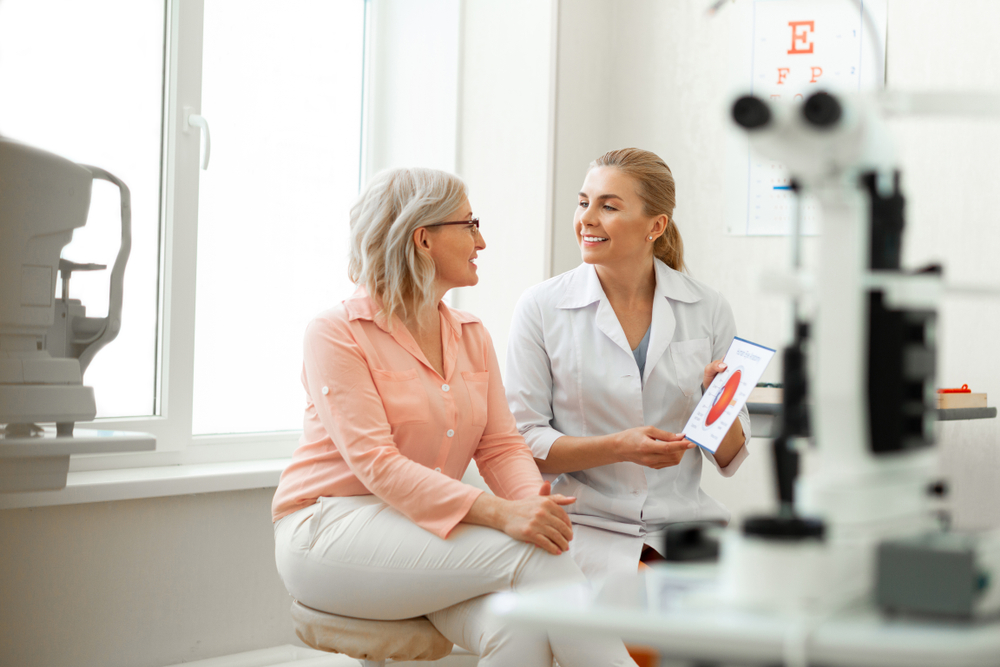Posted by: North Georgia Eye Associates in Eye Health

Your eyes are some of the most essential organs in your body. Without them, you wouldn’t be able to see.
It’s easy to take your sight for granted, but many things can affect how healthy your eyes are that can go unnoticed. Many common eye conditions, especially age-related ones, go undetected until they cause vision loss.
Some of these eye conditions cause irreversible vision loss, so waiting until you notice any symptoms to see your eye doctor usually isn’t enough to save your vision.
Don’t take your eyes and vision for granted! The best way to keep your eyes healthy and your vision clear, regardless of age, is to see your ophthalmologist regularly for a comprehensive eye exam. Keep reading to uncover the importance of comprehensive eye exams and why you need them!
The Importance of Healthy Eyes

Several factors can affect eye health. A refractive error, for example, is extremely common.
You may have multiple refractive errors, like being nearsighted or farsighted with astigmatism. Refractive errors include nearsightedness, farsightedness, and astigmatism.
You can correct refractive errors using glasses and contact lenses; however, you need to see an eye doctor to get a prescription for corrective lenses. But refractive errors aren’t the only common eye condition.
Numerous other eye conditions can affect your vision. Many of these conditions are age-related, so they’re more of a concern as you age.
No matter how old or young you are, you should keep your eyes healthy by scheduling eye exams regularly, especially if you have a refractive error or other pre-existing eye condition.
What is Comprehensive Eye Care?
You can expect comprehensive eye care when you see an optometrist or ophthalmologist. These dedicated specialists can test you for visual problems and eye conditions.
Only an ophthalmologist can treat certain eye conditions, as they have medical degrees, but most optometrists can still detect eye conditions by conducting comprehensive eye exams.
Comprehensive eye care and eye exams are crucial to keeping your eyes healthy, especially as you age. Because many eye conditions develop gradually, they may not have obvious symptoms until vision loss has already occurred. Early detection with comprehensive eye care and eye exams ensures you can receive timely treatment and potentially avoid vision loss.
What Happens During a Comprehensive Eye Exam?

When you have a comprehensive eye exam, your eye doctor will examine several things. First, they need to be familiar with your medical history and your family’s medical history.
It’s essential to provide your medical records and complete any questionnaires about your medical and family medical history as accurately as possible. This helps your eye doctor assess your risk for certain eye conditions.
Comprehensive eye exams include visual acuity and refraction tests if you have a refractive error. Refraction is how your eye doctor can determine your prescription.
Visual testing also usually includes testing your peripheral vision and how your eyes work together. After examining your vision, your eye doctor will look more closely at your eyes.
They usually do this by dilating your pupils with eye drops. Dilating your pupils expands them, allowing your eye doctor to more easily look through them to see the interior of your eye.
They can also use specialized imaging equipment to get a more detailed look inside the eye. This allows your eye doctor to see signs of eye disease, especially in the retina and optic nerve.
These signs are often apparent well before you develop any visual symptoms. By detecting these diseases in the early stages, your eye doctor can diagnose and treat you as early as possible, potentially saving your vision.
Since many eye diseases cause irreversible vision loss, early detection is vital in preserving vision. A comprehensive eye exam is the only way to detect eye disease early.
When to Schedule Eye Exams
Age is one of the most significant factors when scheduling eye exams. If you don’t have any refractive errors and don’t wear glasses or contact lenses, you should see your eye doctor for eye exams every few years in your twenties and thirties, as recommended by the American Academy of Ophthalmology (AAO).

However, this will not be the case if you have a family history of eye conditions or notice any changes to your eyes or vision. Once you’re 40, you should have a complete exam, as your risk of developing age-related eye conditions increases at this age.
If you’re 65 or older, you need to have your eyes checked every year or two. Your eye doctor will determine the best schedule for you and check for signs of cataracts, glaucoma, macular degeneration, and diabetic retinopathy.
Your eye doctor can tell you how often to schedule a comprehensive eye exam. Follow their recommendation and keep up with your scheduled eye exams. Remember, comprehensive eye care can save you from losing your vision!
Are you ready to make your eyes a priority? Take the first step by requesting an appointment today at North Georgia Eye Associates in Braselton, GA!
